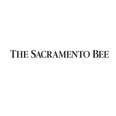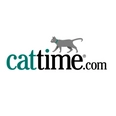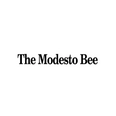Want to be seen here?
Connect your company to the marketplace for free.
Time for a display campaign? Ocast has gathered thousands of solutions in one place so you can get started quickly. Fill in the form and start receiving offers for campaign proposals.

Founded in 1857, The Sacramento Bee is the flagship newspaper of McClatchy. As the region’s leading media company, The Sacramento Bee’s print, online, mobile, and direct mail products reach 98% of the...

The Sacramento Observer is an African American-owned weekly newspaper based in Sacramento, California. The paper was established in 1962 by Dr. William H. Lee, Gino Gladden, and John W. Cole, who purc...

The Humor Times is a monthly humorous review of the news, using editorial cartoons, humor columns and fake news to lampoon deserving politicians and satirize the stories of the day. Don't Cry About th...

For 70 years, The State Hornet has brought excellence in student media to Sacramento State and its surrounding community. We’re ready to connect you and your business with that market today. We believ...

As part of the award-winning Modern Luxury Media network, Riviera Orange County delivers cutting-edge fashion spreads, international travel features, revealing celebrity profiles, and the latest local...

The Orange County Register is a three-time Pulitzer Prize-winning newspaper focused on serving Orange County and helping it thrive. The Orange County Register is part of Southern California News Group...

The Epoch Times is the fastest-growing independent news media in America. We are nonpartisan and dedicated to truthful reporting.We are free from the influence of any government, corporation, or poli...

The Los Altos Town Crier, a locally owned weekly newspaper, is located at 138 Main Street in the picturesque village of Los Altos. Published every Wednesday since 1947, we're the only newspaper to off...

Cattime’s mission is to keep pets out of shelters and get them adopted to good homes by providing novice and experienced owners alike with the important information needed to make them, and their pets...

As part of the award-winning Modern Luxury Media network, Modern Luxury Interiors California delivers cutting-edge content that consistently engages design-savvy homeowners and industry insiders alike...
The West Side Index, one of the most highly-regarded community newspapers in the state of California, was founded in 1890 by Innis Sturgeon, who went into the publishing business with partner T.C Duff...

The East Bay Times is a daily broadsheet newspaper based in Walnut Creek, California, United States, owned by the Bay Area News Group (BANG), a subsidiary of Media News Group, that serves Contra Costa...

The Press-Enterprise is a paid daily newspaper published by Digital First Media that serves the Inland Empire in Southern California. Headquartered in downtown Riverside, California, it is the primary...

The Record was founded in 1895 by Irving Martin as the Evening Record. It is a newspaper that covers stories in the Stockton, San Joaquin and the Mother Lode areas; as well as surrounding areas and a ...

The San Gabriel Valley Tribune is a paid daily newspaper located in Monrovia, California, that serves the central and eastern San Gabriel Valley. It operated at the West Covina location from 1955 to 2...

The Daily Breeze is a print and digital news media company based in Torrance, California. Its coverage area includes the South Bay and Harbor Area cities of Los Angeles County “from LAX to LA Harbor,”...

The Modesto Bee is the premier source of news and information serving its primary market of Stanislaus County and the surrounding region, which includes southern San Joaquin County, Merced County, Tuo...

Los Angeles Daily News is part of the Southern California News Group With a full suite of multi-platform editorial and advertising products, Southern California News Group (SCNG) is one of the most po...

The very first newspaper in Santa Rosa – the parent of today’s Press Democrat, was begun in 1857, just three years after Santa Rosa was chosen as the seat of Sonoma County and seven years after Califo...

The Inland Valley Daily Bulletin is a daily newspaper based in Rancho Cucamonga, California, serving the Pomona Valley and southwest San Bernardino County. The Daily Bulletin is a member of the Southe...
Display advertising, often referred to as banner advertising, involves visual ads placed on various websites, in contrast to text-based search ads that appear in search results on platforms like Google.
While search ads are focused on direct response, display ads aim at building brand awareness through engaging visual content like images or animations. Display advertising also enables retargeting, where ads are redirected to users who have previously visited your website, helping to keep the brand fresh in mind.
With opportunities to measure campaign performance and customize design and target audience, display advertising offers an attractive strategy for brands looking to enhance their online presence and effectively engage their target audiences.
The most effective formats and sizes for display ads vary depending on the platform and target audience, but here are some popular options:
Leaderboard (728x90 px): Positioned at the top of the page, this ad size captures visitors' attention right away.
Medium Rectangle (300x250 px): This size is flexible and can be placed in sidebars or embedded within content.
Large Rectangle (336x280 px): A larger variant of the Medium Rectangle that offers more visible space.
Wide Skyscraper (160x600 px): Often used in sidebars, offering a long, vertical ad space.
Mobile Leaderboard (320x50 px): Optimized for mobile devices and often placed at the top or bottom of the screen.
Consider adhering to industry standards and adapting ad format and size to the specific platform and your target audience. However, the emphasis should be on having well-thought-out content that engages and is relevant to your target audience with clear "Call to Actions" (CTA) to encourage clicks and conversions.
Measuring the effectiveness of your display advertising campaigns is crucial for evaluating the results of your campaign and for fine-tuning future marketing strategies. A first step could be to look over the Click-Through Rate (CTR), which represents the number of clicks your ad receives per view, providing an indication of the ad's engagement level. It is also important to track the conversion rate, which shows how many clicks are converted into desired actions such as sales or leads. Cost Per Conversion is another key indicator that helps you understand the cost-effectiveness of your campaign.
It may also be good to look at the impression rate, that is, how many times the ad has actually reached out and been displayed for brand-building purposes.
One of the major advantages of this type of advertising is its ability for audience targeting, where ads can be directed based on demographics, behavior, and retargeting, enabling a more personalized advertising experience. Moreover, with the use of various analytical tools, it becomes easy to track and measure the campaign's effectiveness by observing data on clicks, conversions, and views, which provides valuable insights.
However, display advertising also has its downsides. Ad blocking is one of the major challenges, where users can choose to block display ads, which in turn reduces the reach and effectiveness of your campaign. Ad fatigue is another downside, where ads that are shown too often can become irritating for the users, leading to decreased engagement and negative brand associations. Despite the ability for audience targeting, audience dilution can be a challenge if precise targeting is not used, which potentially leads to wasted marketing expenses. Additionally, the cost of display advertising can become significant, especially if the campaign is not well optimized to achieve desired results.
The cost of display advertising can vary based on several factors such as website, ad format, and target audience. Besides that, there are different pricing structures one can base on to adjust the cost according to the goal at hand. Below we list different pricing options for display advertising.
CPM (Cost Per Mille or Cost Per Thousand Impressions):
The price for 1000 views of your ad.
Often used for campaigns aimed at increasing brand awareness.
CPC (Cost Per Click):
The price you pay for each click your ad receives.
Used when the goal is to drive traffic to a website or increase interaction.
CPA (Cost Per Acquisition or Cost Per Action):
The price for each specific action or execution, such as a purchase or lead generation, that arises via your ad.
Used when the goal is conversions rather than just views or clicks.
CPL (Cost Per Lead):
The price for each lead generated through your ad.
Used in B2B marketing or for products/services with longer sales cycles.
CPV (Cost Per View):
The price for each viewing of a video ad.
Often used for video-based advertising campaigns.
Each pricing structure suits different goals and campaign types, and choosing the right pricing structure can help maximize the ROI for your display campaign.
Connect your company to the marketplace for free.
No commitments.